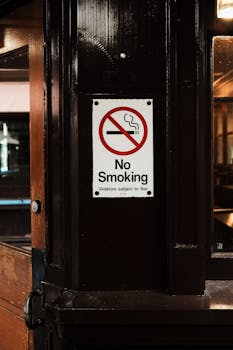+17162654855
+17162654855
NRP Publication News serves as an authoritative platform for delivering the latest industry updates, research insights, and significant developments across various sectors. Our news articles provide a comprehensive view of market trends, key findings, and groundbreaking initiatives, ensuring businesses and professionals stay ahead in a competitive landscape.
The News section on NRP Publication News highlights major industry events such as product launches, market expansions, mergers and acquisitions, financial reports, and strategic collaborations. This dedicated space allows businesses to gain valuable insights into evolving market dynamics, empowering them to make informed decisions.
At NRP Publication News, we cover a diverse range of industries, including Healthcare, Automotive, Utilities, Materials, Chemicals, Energy, Telecommunications, Technology, Financials, and Consumer Goods. Our mission is to ensure that professionals across these sectors have access to high-quality, data-driven news that shapes their industry’s future.
By featuring key industry updates and expert insights, NRP Publication News enhances brand visibility, credibility, and engagement for businesses worldwide. Whether it's the latest technological breakthrough or emerging market opportunities, our platform serves as a bridge between industry leaders, stakeholders, and decision-makers.
Stay informed with NRP Publication News – your trusted source for impactful industry news.
Energy

France is making headlines with a bold new public health initiative: a nationwide ban on smoking in numerous outdoor public spaces. Effective immediately, lighting up in areas frequented by families and children, including beaches, parks, playgrounds, and bus shelters, is now strictly prohibited. This sweeping ban aims to significantly reduce exposure to secondhand smoke, particularly among vulnerable populations, and is already sparking debate and discussion internationally. The move highlights France's commitment to combating tobacco-related illnesses and protecting public health, a significant step in the global fight against smoking.
The French government has framed this legislation as a crucial step in protecting children and reducing the overall burden of tobacco-related diseases. Secondhand smoke, the government argues, poses significant health risks, contributing to respiratory illnesses, heart problems, and even cancer. Children, with their still-developing respiratory systems, are especially vulnerable. The ban targets high-traffic public areas where children are likely to be present, ensuring a healthier environment for everyone.
The ban is not just about protecting children; it is part of a broader strategy to curb smoking rates in France. The country has long struggled with high rates of tobacco use, resulting in significant health costs and a reduced quality of life for many. This new ban, coupled with existing anti-smoking campaigns and increased tobacco taxes, reflects a multi-pronged approach to tackling this pervasive public health issue. The initiative aligns with growing global awareness of the devastating effects of tobacco and the urgent need for effective intervention strategies.
The new regulation explicitly prohibits smoking in:
Beaches: Smoking is banned on all French beaches, aiming to keep these popular family destinations smoke-free. This extends to all areas within beach perimeters, including sand, dunes and nearby promenades.
Parks and Playgrounds: Similar restrictions apply to parks and playgrounds, ensuring children's play areas are free from the harmful effects of secondhand smoke.
Bus Shelters: Waiting for public transportation will now be a cleaner, healthier experience, thanks to the ban in these enclosed spaces.
School Grounds: This is an existing ban, but it is reaffirmed and incorporated into the broader strategy.
The legislation is broad in scope, encompassing many frequently used outdoor public spaces and leaving little room for ambiguity. Further clarifications are expected, particularly regarding the precise definitions of boundaries within parks and other large outdoor spaces.
Enforcement of the ban will fall primarily on local authorities, with police officers and other officials empowered to issue fines to violators. While the exact penalties may vary depending on the region, expect fines to be substantial, acting as a strong deterrent. Initial reports suggest fines will range from €68 to €150 (approximately $75 to $165 USD), making non-compliance a costly mistake.
The government is emphasizing a combination of education and enforcement. Public awareness campaigns will be launched to inform the public about the new rules, ensuring compliance is driven by knowledge and understanding. However, significant fines will be issued to those who knowingly disregard the regulations, demonstrating the government's commitment to effectively implementing the ban.
The ban has garnered significant public support, with many praising it as a necessary step for public health. Polls conducted before the implementation indicated a strong majority in favor of restrictions on smoking in public spaces. The general consensus reflects a growing public awareness of the harms of secondhand smoke and the need to protect vulnerable groups. However, it is also worth noting that some concerns have been raised regarding the practicality of enforcing the ban in large and diverse public spaces.
Looking ahead, the success of this ban will serve as a benchmark for similar initiatives in other countries grappling with similar challenges. International attention is focused on France's efforts, with other nations likely to observe the results and consider implementing similar measures. The long-term effectiveness of this legislation will depend on a number of factors, including the robustness of enforcement, the level of public cooperation, and the long-term impact on smoking rates and public health outcomes. The French government's commitment to monitoring and evaluating the ban’s effectiveness will be crucial in determining its long-term success and informing future public health policy. The implications extend beyond France, potentially influencing global strategies for reducing tobacco consumption and protecting public health.
The fight against smoking is a global one, and France's comprehensive approach to outdoor smoking bans is a significant step in this ongoing battle. This ban is more than just a new law; it’s a testament to a country's commitment to building healthier communities for generations to come. The impact of this ban on public health and its potential to influence similar policies worldwide remains to be seen, but its implementation marks a significant moment in the ongoing global effort to reduce the harms of tobacco.